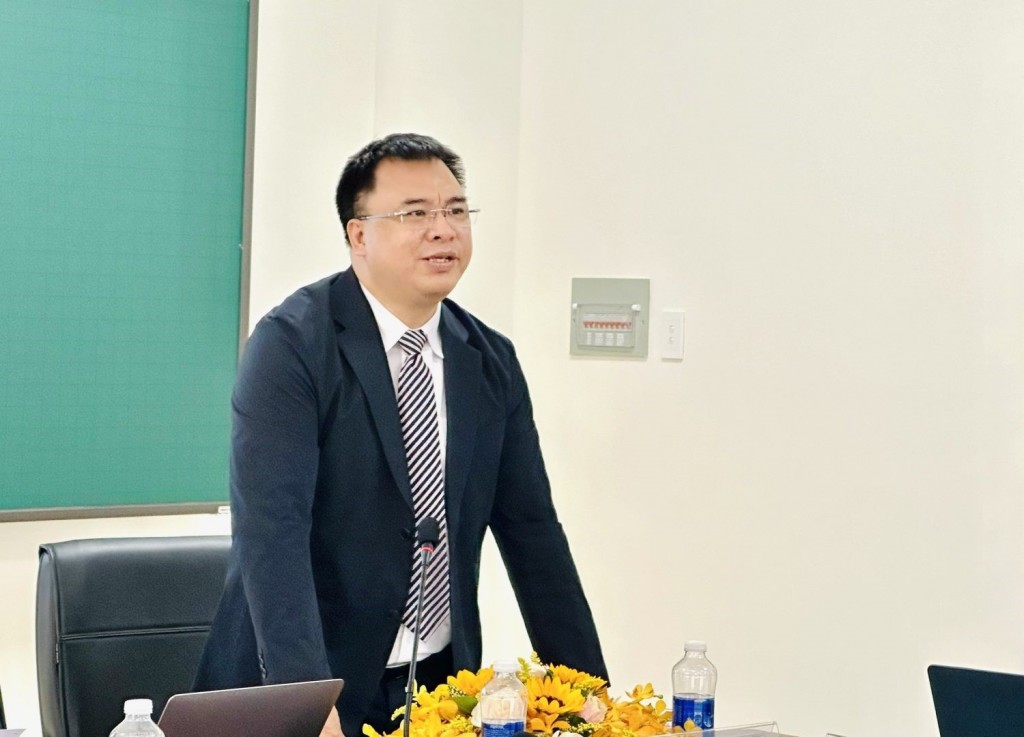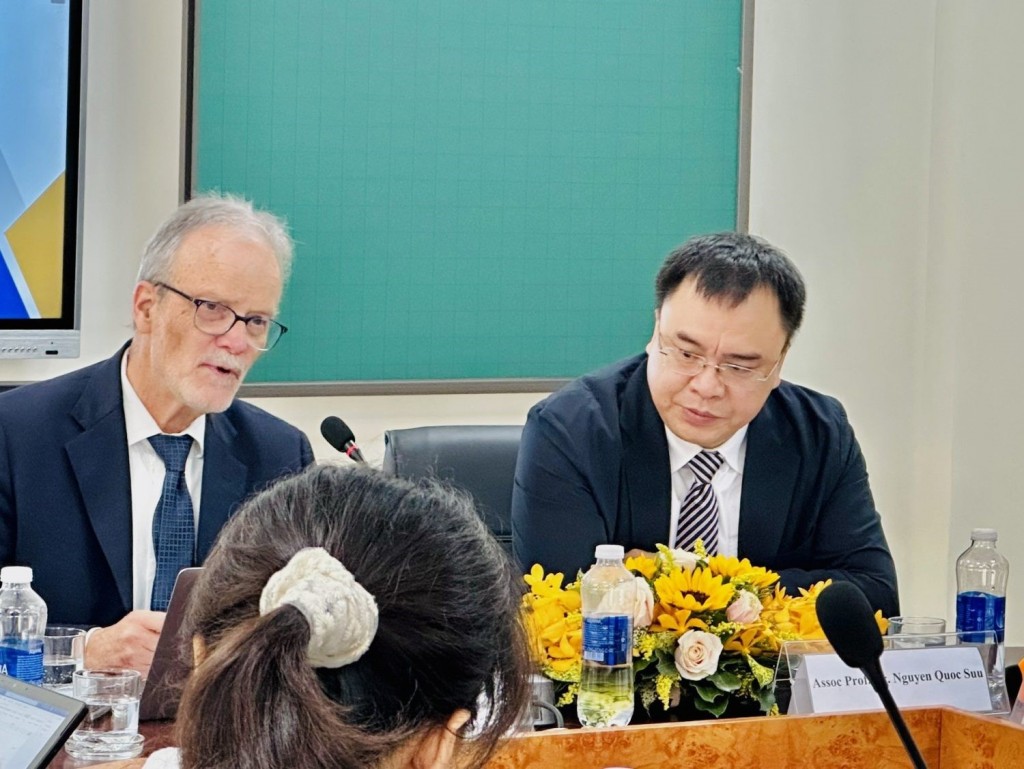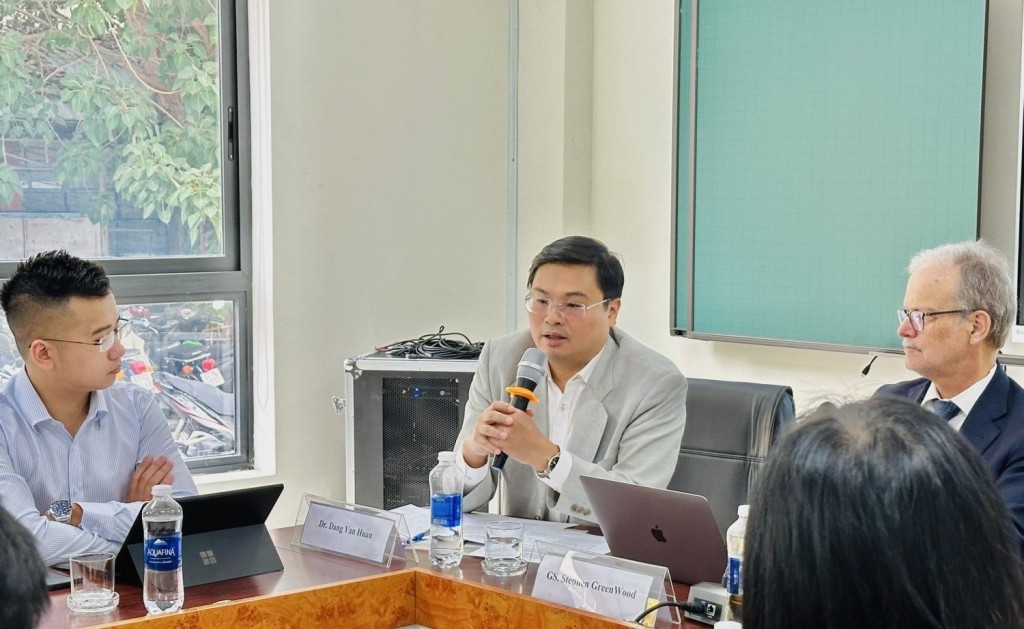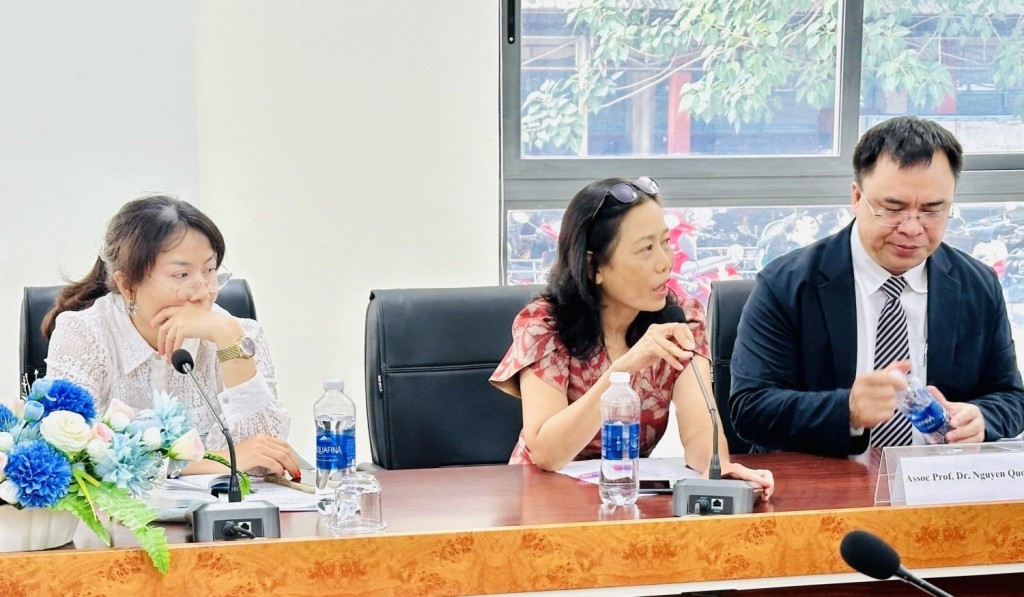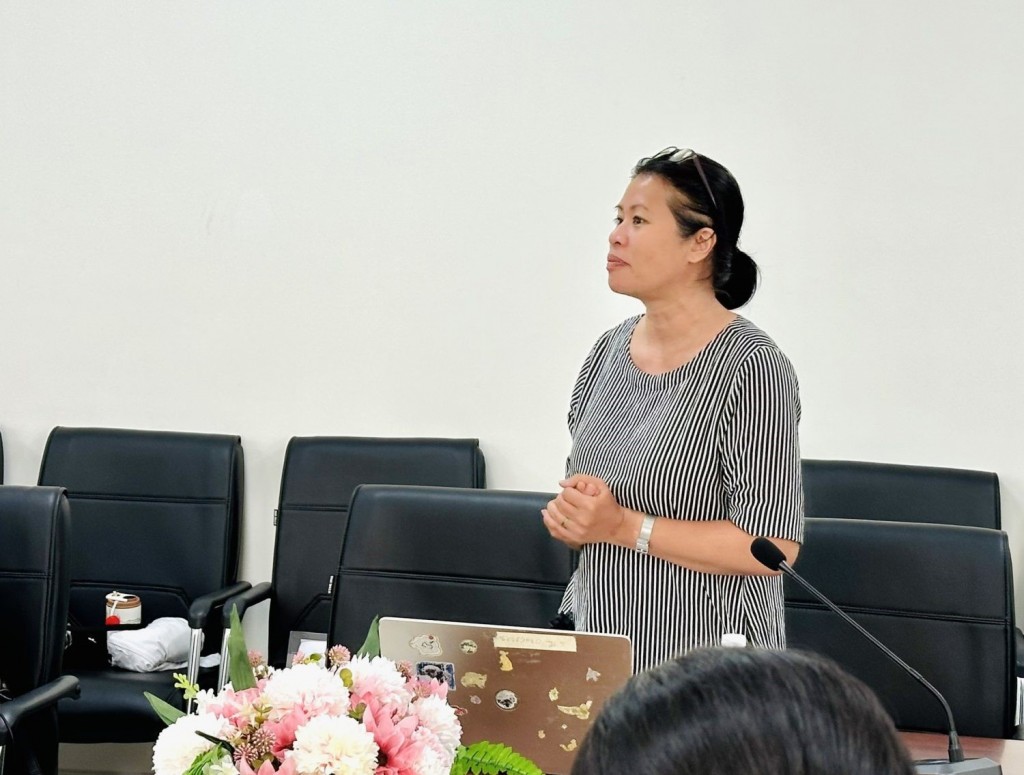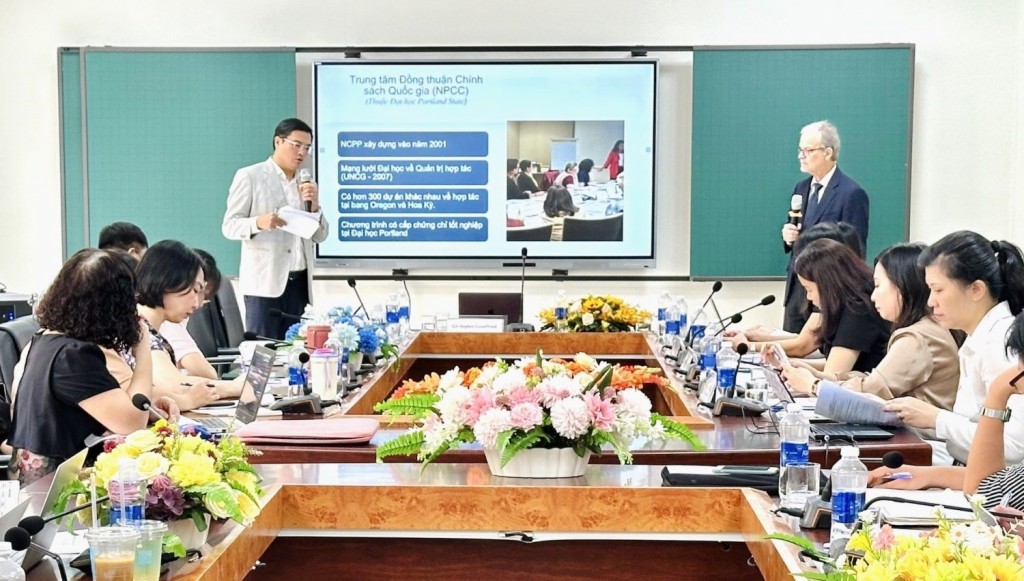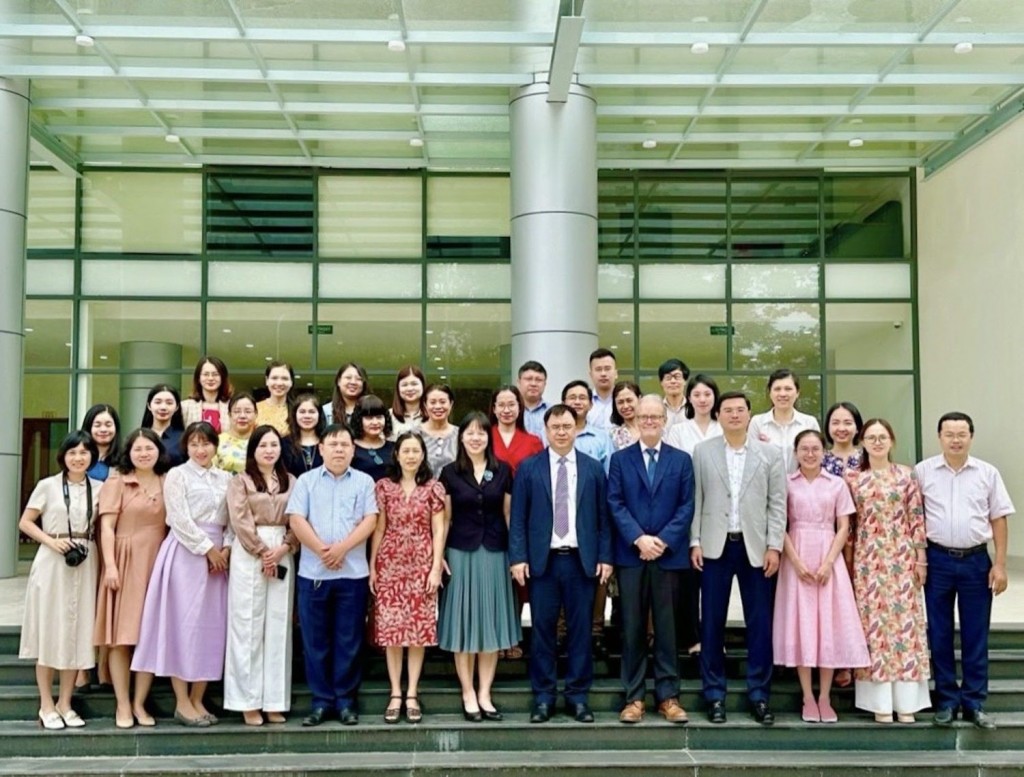On March 6, 2024, at the NAPA Branch Campus in Ho Chi Minh City, the National Academy of Public Administration (NAPA), in collaboration with the National Policy Consensus Center (NPCC) at Portland State University, Oregon State, USA, organized a Seminar on “Collaborative governance: Challenges and opportunities in the United States and Viet Nam”. The Seminar was co-chaired by Assoc. Prof. Dr. Nguyen Quoc Suu, NAPA Vice President, Prof. Stephen Greenwood and Dr. Dang Van Huan from the NPCC at Portland State University, Oregon State, USA.
Attending the Seminar, on the international expert side, there was the participation of Prof. Stephen Greenwood, senior lecturer; Dr. Dang Van Huan, from NPCC at Portland State University, Oregon State, USA. On the side of NAPA, there were Assoc. Prof. Dr. Nguyen Quoc Suu, NAPA Vice President; Ms. Pham Thi Quynh Hoa, Director, Department of International Cooperation; Dr. Truong Cong Hoa, Executive Vice Director of the NAPA Branch Campus in Ho Chi Minh City; representatives of educational institutions, experts, scientists, lecturers and participants from the NAPA Branch Campus in Ho Chi Minh City.
In his opening remarks, Assoc. Prof. Dr. Nguyen Quoc Suu, on behalf of NAPA, welcomed the experts and delegates to the Seminar, expressing his delight at the high level of interest from scholars, officials, leaders, managers, and delegates from educational institutions. Assoc. Prof. Dr. Nguyen Quoc Suu also expressed his confidence that the experts from the NPCC, Portland State University, USA and delegates would have fruitful discussions on collaborative governance issues. He respectfully thanked the U.S. Consulate in Ho Chi Minh City for their cooperation, as well as the presence of distinguised delegates, experts, and participants from both Viet Nam and the USA.
Prof. Stephen Greenwood, in his role as co-chair, provided an overview of NPCC at Portland State University, emphasizing the University Network for Collaborative Governance (UNCG) established in 2007 as well as over 300 different collaborative projects in Oregon and the United States. The core content of the Seminar was presented through two practical cases from Oregon on project implementation with the participation of NPCC, as well as the application of collaborative governance principles, skills, and tools in promoting negotiations and policy consensus.
Dr. Dang Van Huan presented about constructive government and mindset change in state management associated with collaborative governance. Illustrative examples of constructive and exploitative government models in the UK and Spain show the importance of ensuring decentralization, building consensus, cooperation and conflict resolution. Dr. Dang Van Huan emphasized that collaborative governance is a method to promote public governance, an effective way of interactive management between the state, government, community, citizens, and businesses.
At the Seminar, Dr. Nguyen Hoang Anh, Dean of the Faculty of Interdisciplinary Sciences, exchanged and discussed the nature of collaborative governance, which will narrow the gap between the government and the people. However, a major challenge in Viet Nam is the conflict of interests in each locality; thus, achieving harmony in interests is a core issue to be addressed in collaborative governance.
Prof. Stephen Greenwood believes that this is a problem not only in Viet Nam but also in other countries, and it is a question of authority when working with parties. According to him, sometimes it is necessary to relinquish some authority; he gave an example when he participated in traffic in Viet Nam, where everyone had to yield a little to each other to reach their destination, even though everyone has the right to go in any direction they want. Culturally, he believes that Vietnamese people inherently have a spirit of cooperation. Therefore, our task is to help them understand this spirit of collaboration. He emphasized that when collaborating with other parties, you do not lose but gain more strength and resources.
Dr. Nguyen Trang Thu, lecturer of the Faculty of Administrative Sciences and Personnel Organization, raised the issue of interdependence, namely that sometimes the parties involved do not know what they need. She cited the dependence of farmers on the government in implementing agricultural projects as an example. How can farmers know they need an environment for economic development, access to more modern means, and infrastructure through government assistance? Discussing this issue, Prof. Stephen Greenwood affirmed that the issue raised is very relevant and can happen anywhere. According to the professor, the approach is to have a facilitator to help pose questions about the needs of the parties. The facilitator must create a sharing environment to help the parties understand and share their own needs.
Mr. Tran Anh Hung, Vice Dean of the Faculty of State and Law, proposed the idea of establishing a Center for Protecting Rights (similar to NPCC) at NAPA to build compromise, negotiation, cooperation, and decision-making to ensure the interests of all parties. Regarding this proposal, Prof. Stephen Greenwood and Dr. Dang Van Huan believe that this is a feasible idea; however, when establishing it, it needs to be based on the mechanisms, policies, and authority of NAPA.
The Seminar “Collaborative Governance: Challenges and Opportunities in the United States and Viet Nam” has also attracted many opinions from experts and scholars inside and outside the branch campus while also opening up deeper cooperation opportunities for the NPCC at Portland State University, Oregon State, USA in academic exchanges, faculty and student exchanges.



